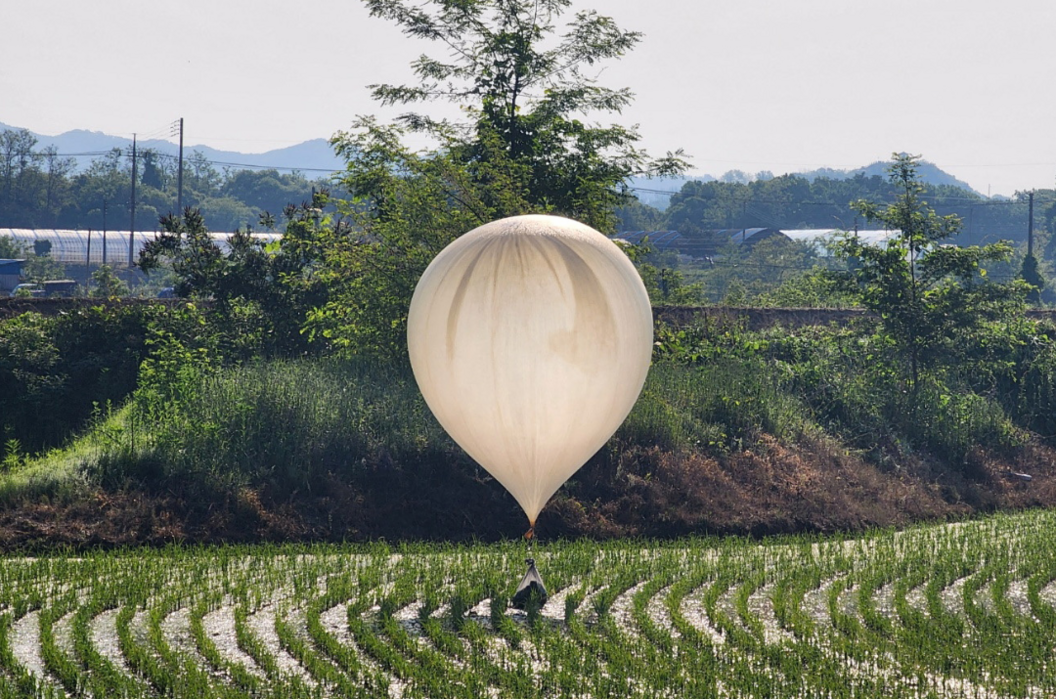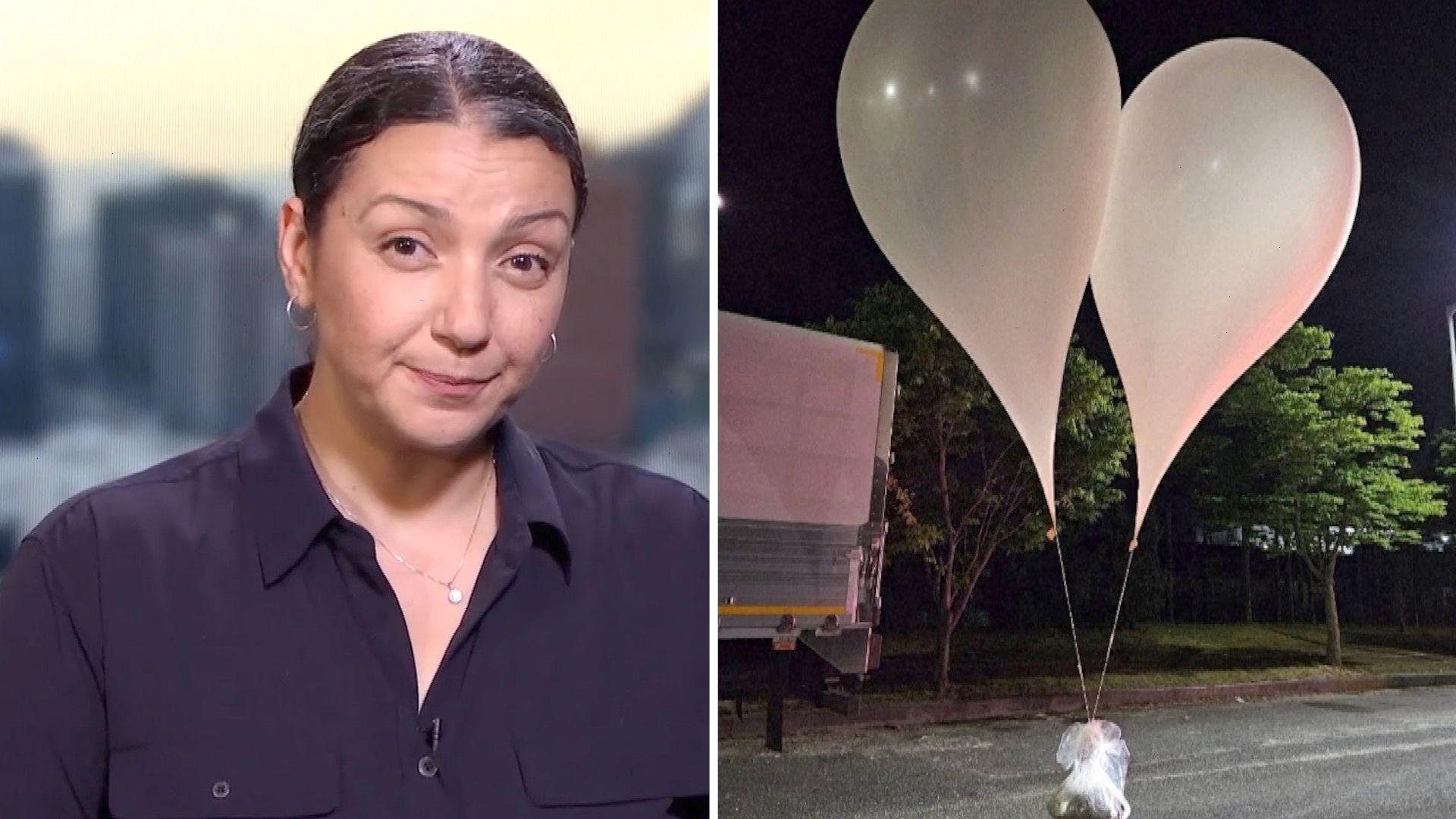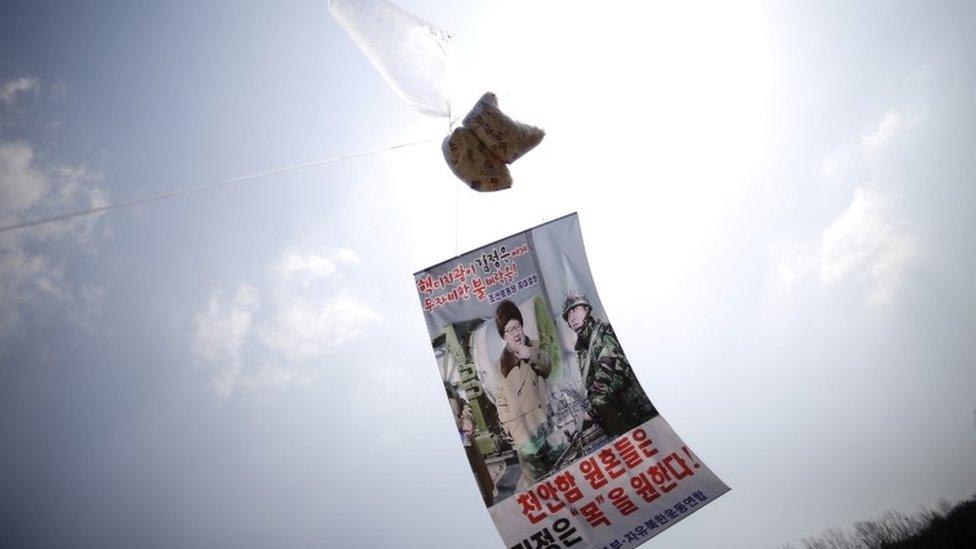North Korea floats more rubbish-filled balloons over South Korean border

On 29 May, a balloon believed to have been sent by North Korea carrying various objects including what appeared to be trash and excrement was spotted over a rice field at Cheorwon, South Korea
- Published
North Korea is sending more balloons carrying rubbish across the heavily fortified southern border, South Korea's military has said.
It comes just days after North Korea appeared to send at least 200 balloons carrying rubbish over the border in retaliation for propaganda leaflets sent from the south.
South Korea's defence minister Shin Won-sik called it "unimaginably petty and low-grade behaviour" while the military added it is examining the contents of the bags floated over the border by the balloons.
North Korea has yet to comment on the latest batch of balloons, but on Thursday, vice-defence minister Kim Kang Il warned waste paper and filth would be sent over the border so the South could appreciate how much effort it takes to remove them.
South Korea's military asked the public to avoid touching the balloons and report them to authorities, according to a statement on Saturday reported by news agency Yonhap, external.
A public message asked people in the South Korean capital to refrain from touching balloons "identified in the sky near Seoul" and to report them as these were "being handled by the military".
Other regional governments had been asked to broadcast similar messages, the defence ministry said.
Late on Tuesday, residents living in Seoul and in the border region received text messages from provincial authorities asking them to "refrain from outdoor activities".
They were also asked to file a report at the nearest military base or police station if they spot an "unidentified object".
South Korean authorities said the bags "contained filthy waste and trash" and were being analysed by relevant authorities.
North and South Korea's rubbish-filled balloon saga explained… in 63 seconds
Photographs shared on social media show bags attached via string to white translucent balloons carrying toilet paper, dark soil and batteries, among other contents.
Police and military officers are seen in some of these photographs.
South Korea's Yonhap news agency reported that "some of the fallen balloons carried what appears to be faeces, judging from its dark colour and odour".
South Korea's military condemned the act as a "clear violation of international law".
"It seriously threatens the safety of our people. North Korea is entirely liable for what happens due to the balloons and we sternly warn North Korea to immediately stop this inhumane and crass action," the military said.
North and South Korea have both used balloons in their propaganda campaigns since the Korean War in the 1950s.
Recent incidents come days after North Korea said it would retaliate against the "frequent scattering of leaflets and other rubbish" in border areas by activists in the South.
In addition to anti-Pyongyang propaganda, activists in South Korea have launched balloons carrying among other things, cash, banned media content and even Choco Pies - a South Korean snack banned in the North.
Earlier this month, a South Korea-based activist group claimed it had sent 20 balloons carrying anti-Pyongyang leaflets and USB sticks containing Korean pop music and music videos across the border.
Seoul's parliament passed a law in December 2020 that criminalises the launch of anti-Pyongyang leaflets, but critics have raised concerns related to freedom of speech and human rights.
North Korea has also launched balloons southward that attacked Seoul's leaders.
In one such launch in 2016, the balloons reportedly carried toilet paper, cigarette butts and rubbish. Seoul police described them as “hazardous biochemical substances”.
- Published29 May 2024

- Published14 December 2020
